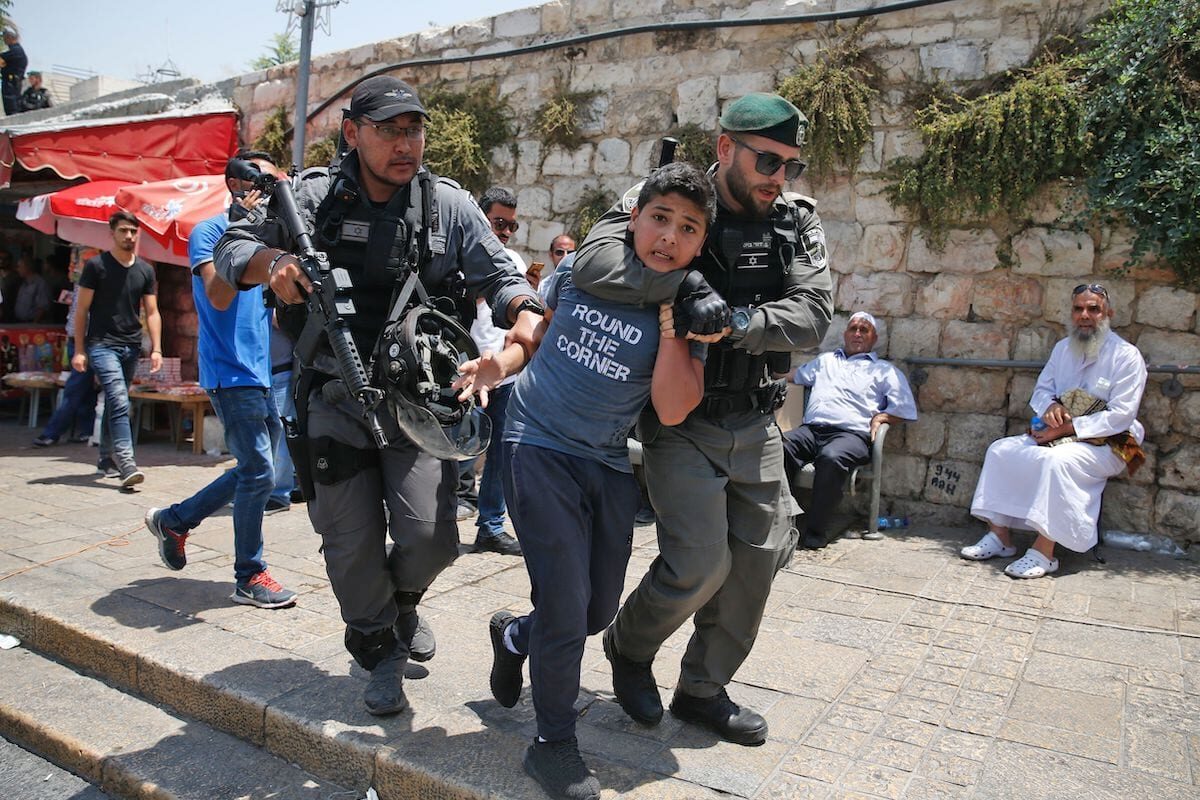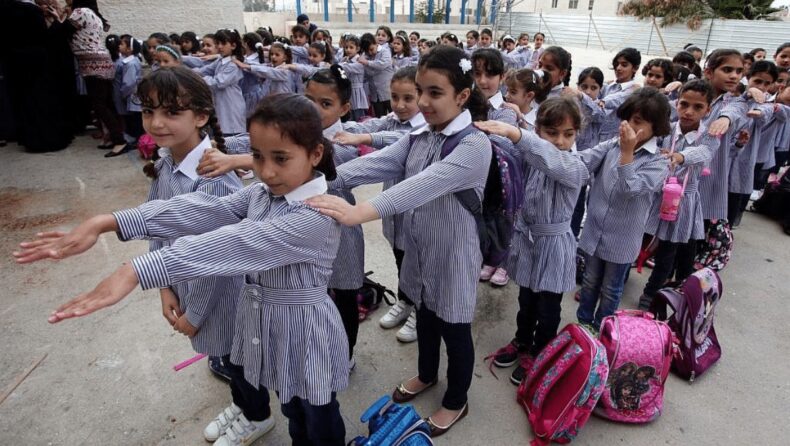Tens of thousands of students were prevented from attending school on September 19 as a result of a walkout at 150 East Jerusalem schools over the adoption of Israeli textbooks.
Tens of thousands of pupils were prevented from attending school on September 19 as a result of a walkout at 150 East Jerusalem schools over the adoption of Israeli textbooks.
The attack in East Jerusalem, which is primarily populated by Palestinians, is the most recent flashpoint in a long-running debate about what and how Jerusalem-area kids should learn about the war in their textbooks.
Palestinian parents and activists claim that by promoting an Israeli narrative, Israel is attempting to obliterate their identity. Many Palestinian textbooks, according to Israeli authorities and activists, encourage hatred for Jews and glorify violence.

Israeli authorities in Jerusalem started a programme five years ago with the goal of gradually replacing the Arabic-language curriculum taught in Israeli-Arab schools with the Palestinian curriculum taught in East Jerusalem schools. For schools that opted to make the move, additional funding was made available.
Palestinian pupils adopting the Israeli curriculum has increased thirty-fold since five years ago, Yoav Zamran, director of education for the Jerusalem municipality, told KAN News last week. There are now more than 15,000 youngsters, he claimed, up from 500 when he first started.
There are reportedly more than 98,000 Palestinian students in East Jerusalem, according to the Palestinian charity the Faisal Al Husseini Foundation.
Six schools in East Jerusalem had their licenses suspended by the Israeli Ministry of Education in July because they insisted on using textbooks produced by the Palestinian Authority rather than those that had been endorsed by Israeli officials in Jerusalem and the Israeli Ministry of Education. They were given a year to change their curriculum or risk having their licenses completely revoked.
At the time, Israel’s minister of education, Yifat Sasha Biton, said that the textbooks promoted “hate speech against the State of Israel and its symbols” and featured incitement against Israel and her soldiers.
The Israeli textbooks that the government wants the students to use are based on the textbooks of the Palestinian Authority, but Israeli officials have altered or entirely rewritten certain parts or entire chapters.
The parents claim that is the problem, claiming that images of the Palestinian flag are deleted and that entire sections about Palestinian identity have been changed or removed totally.
Parents gave the example of a Palestinian math lesson that depicts the wall separating the West Bank from Israel and talks about recording “violations of the occupation in order to report it to the International Criminal Court.
” The Palestinian lesson encourages students to fill out a table that counts the number of “Palestinian towns isolated by the annexation wall,” which is a large portion of the wall’s route through the West Bank proper. The Israeli translation substitutes a task requiring the completion of a population distribution table in its place.
The Israeli version of a third-grade Palestinian textbook omits a circumstance where a Palestinian father is detained in the home overnight by Israeli soldiers, leaving a child “worried and fatigued,” according to another example offered by parents.

Because “your father became a prisoner like hundreds of Palestinian captives,” who “are battling and resisting the Zionist occupation,” the mother assures the young child not to be alarmed.
Students are instructed to keep in mind that all Palestinian detainees are there “because of their resistance” to the occupation.
Such courses, according to Israeli authorities, glorify detainees, especially those who perpetrate violent crimes.
According to the Palestinian Prisoners Club, there are over 4,600 Palestinians imprisoned in Israel, with 743 of them being detained in “administrative detention”—a place where they are held without indictment or trial. The number excludes people who were detained for minor infractions of the law.
Without disclosing sensitive information regarding the grounds for the arrest, Israel claims that administrative detention is required to remove dangerous individuals from the streets before they may commit a crime.
According to human rights organizations, such imprisonment, which may endure for months, violates the inmates’ fundamental rights as guaranteed by international law.
In the 1967 conflict, Israel seized control of East Jerusalem from Jordan. Most nations and international organizations classify it as occupied territory, but Israel, which asserts that Jerusalem is its undivided capital, disagrees.
For the time being, parents have purchased and distributed their own textbooks to the six schools whose licenses were suspended. The remaining students are working from worksheets rather than textbooks.













